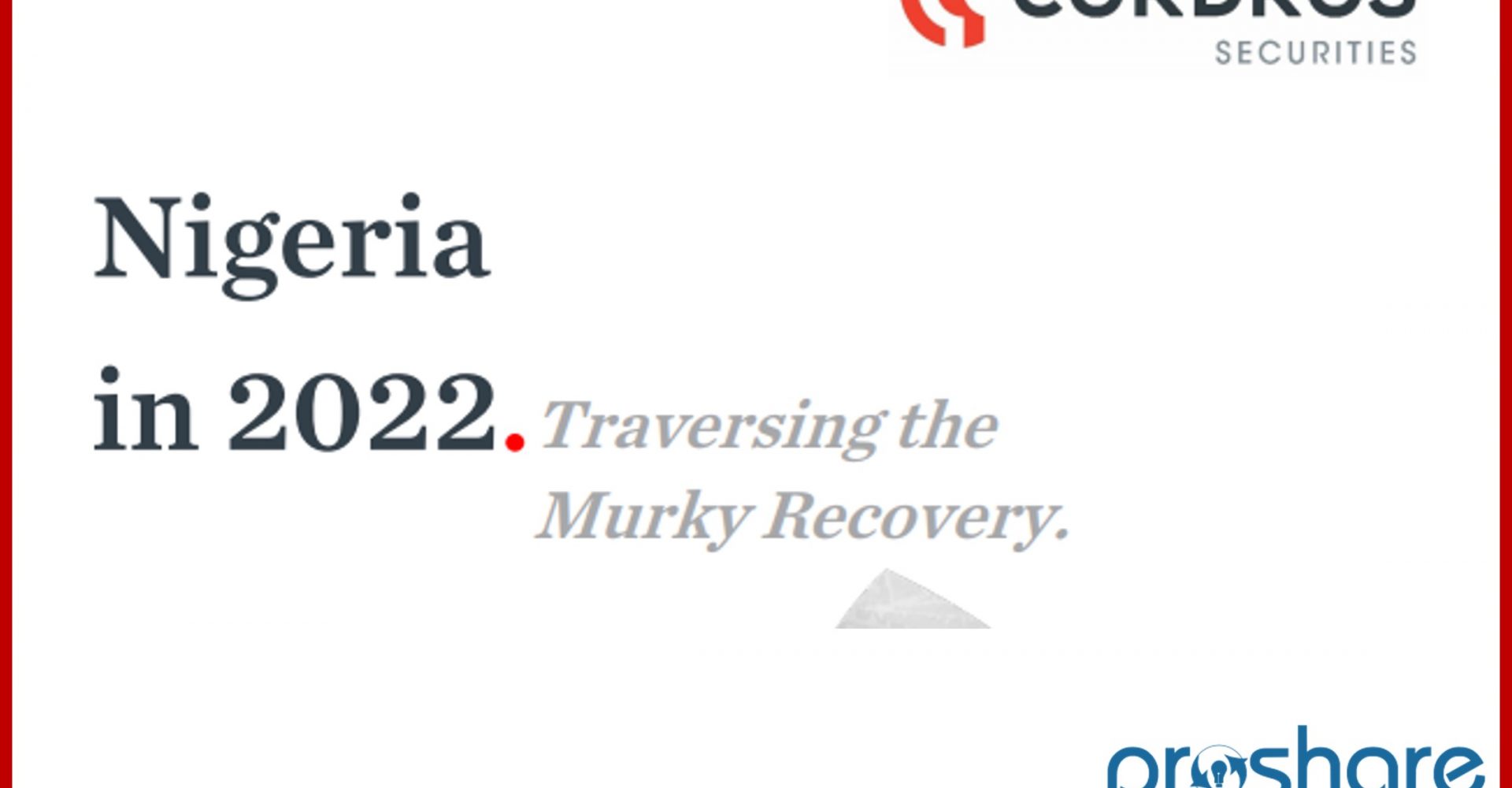In its recently released 2022 Economic Outlook Report, Proshare has predicated Nigeria’s economy to grow by 2.6 percent in 2022.
According to analysts at Proshare, the fading effect of a shallow base that held sway for most of 2021 will cause growth in most sectors of the economy to moderate.
With 2022 being a pre-election year, Proshare anticipates that the Nigerian government would likely exceed the 3.5% fiscal balance to GDP ratio. At the same time, the transition to cleaner energy will continue to impact oil production.
“As a result, economic diversification of exports, and government revenue will remain the single most important effort required to address Nigeria’s growth challenges.”
Proshare expects that Brent crude price will settle around US$80 per barrel in 2022 as the global oil consumption outpaces the combined slow growth in output from OPEC+ and non-OPEC producers and the US tight output.
” In addition, oil consumption is expected to remain strong as countries internalize the pandemic as endemic and activities return to near normal. Thus, this forecast is premised on the expectation that the situation with oil supply may remain the same.”
For the manufacturing sector, Proshare expects that gains will be recorded from projected growth in population, and the price and perhaps income inelasticity of processed food like wheat and bread. However, implicit devaluation and subsidy removal could raise input costs.
Also, the analysts project that the Agricultural sector will likely expand by 2.1% Year-on-Year in 2022, driven by restructuring in household spending due to rising food prices and limited growth in income in 2022.
Proshare expects growth of 2% – 3% Y-o-Y in 2022, due to a slower than expected start to the year particularly in terms of trade. The slow pace of progress with the implementation of the AfCFTA rules of origin could stifle the gains from open borders.
“The menace of smugglers continues to undermine trade output while the cargo clearing logistics at the ports recently worsened by the collapse of the e-call up system (Eto) also poses downside risks to the growth of the sector in 2022.” The report noted.
Analysts at Proshare also projected the financial and insurance sector growth to continue in 2022, with several high-profile mergers and acquisitions in the works, while the ICT sector is likely to witness expansion in 2022.
The projections are based on account of increase in the number of subscribers and the deployment of the 5G technology; which suggest the possibility that the trade sector may, for the first time in 2022, contribute less to the country’s GDP than the ICT sector.
“Going forward, growth in the ICT sector is expected to come in between 9% and 13% in 2022. Conversely, currency depreciation and global inflation would constrain growth in the real estate sector to between 2% and 2.5%.”
Speaking about the Report, Proshare’s Managing Editor/Chief Economist, Teslim Shitta-Bey explained that the 2022 Economic Report focused on reviewing the global economy and the performance of the different sectors of the Nigerian economy while projecting what corporates and households should expect in the year 2022.
According to Shitta-Bey, it is necessary for businesses and government to understand the threats and opportunities inherent in a pre-election year to ensure proper plans and data driven decisions.
Other insights documented in the report alongside monetary and fiscal outlook as well as the outlook for the various sector of the economy include the performance of the global equities market, the Nigerian fixed income, equities, and commodities market in 2021, the significant developments that shaped the demand and supply of oil and gas in the international market in 2021, happenings in the crypto and tech markets in 2021.









Comment here